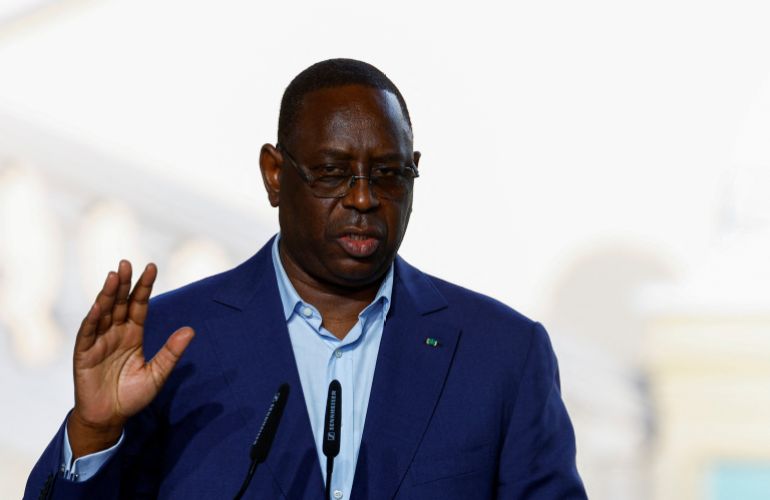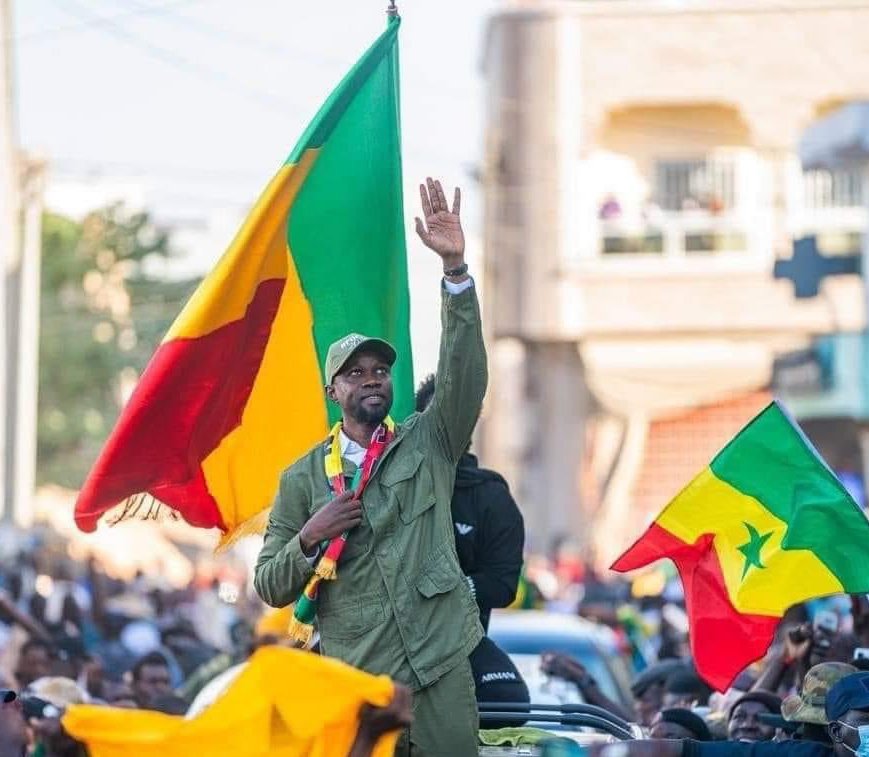Sun 24 March 2024:
Voters in Senegal are casting ballots to elect their next president among a crowded field of 17 candidates. The delayed polls take place following a period of uncertainty after President Macky Sall’s unsuccessful effort to delay the election. There are no clear frontrunners, but former Prime Minister Amadou Ba from the ruling Benno Bokk Yaakaar coalition and Bassirou Diomaye Faye, who is running in place of disqualified opposition figure Ousmane Sonko, are among those seen as the leading contenders. A candidate will have to win more than 50 percent of the vote to secure a win in the first round.
More than seven million of Senegal’s over 17 million people are eligible to vote in the election, which will see about 16,440 polling stations open across the country and in the diaspora.
To avoid a run-off, one candidate must secure more than 50 percent of the vote.
If no candidate obtains an absolute majority of the vote in the first round, the two top candidates would go head-to-head.
According to the constitution, the run-off should be held on the third Sunday after the proclamation of the results of the first round by the Constitutional Council.
Macky Sall: Due to constitutional term limits, Sall will step down and for the first time in Senegal’s history the incumbent will not be on the ballot.

Sall ruled out running for a third term in July after violent unrest in the West African country, throwing wide open the race to succeed him. Momentum has gathered pace for the opposition as support for Sall dropped during his second and final term in office.
Ousmane Sonko: Sall’s main opponent cannot take part because he was convicted of defamation. The popular but divisive politician, now backing Faye, rose to prominence by criticising elites and promising to help Senegal’s jobless youth. He has many critics but many say he speaks truth to power.
Immediately after voting ends, ballots are counted in the polling stations and displayed at each location.
Copies are given to representatives of candidates and the national election commission. Vote tallies are transmitted to the Constitutional Council. The national election commission proclaims the provisional results.
Provisional results could be known as soon as a few hours after polls close but final results should emerge days after the election, with many expecting a run-off. In previous elections, the second round of voting took place about a month after the first round.
Sall is expected to leave office by April 2, and in the event of a run-off the head of the national assembly, Amadou Mame Diop, would take over in the interim.
Originally scheduled to take place on February 25, Sall plunged the country into chaos last month when he announced he was delaying the vote to December.
The move sparked deadly protests, as well as pushback from the opposition and Sall’s critics, who saw the delay as an attempt to breach the country’s constitution and bypass the president’s two-term limit.
Eventually, a decision by the Constitutional Council to overrule the postponement led to Sall setting March 24 as election day. But the debacle has shaken Senegal’s reputation as a stable democracy in an often politically volatile region.
SOURCE: INDEPENDENT PRESS AND NEWS AGENCIES
______________________________________________________________
FOLLOW INDEPENDENT PRESS:
WhatsApp CHANNEL
https://whatsapp.com/channel/0029VaAtNxX8fewmiFmN7N22
![]()
TWITTER (CLICK HERE)
https://twitter.com/IpIndependent
FACEBOOK (CLICK HERE)
https://web.facebook.com/ipindependent
YOUTUBE (CLICK HERE)
https://www.youtube.com/@ipindependent
Think your friends would be interested? Share this story!






